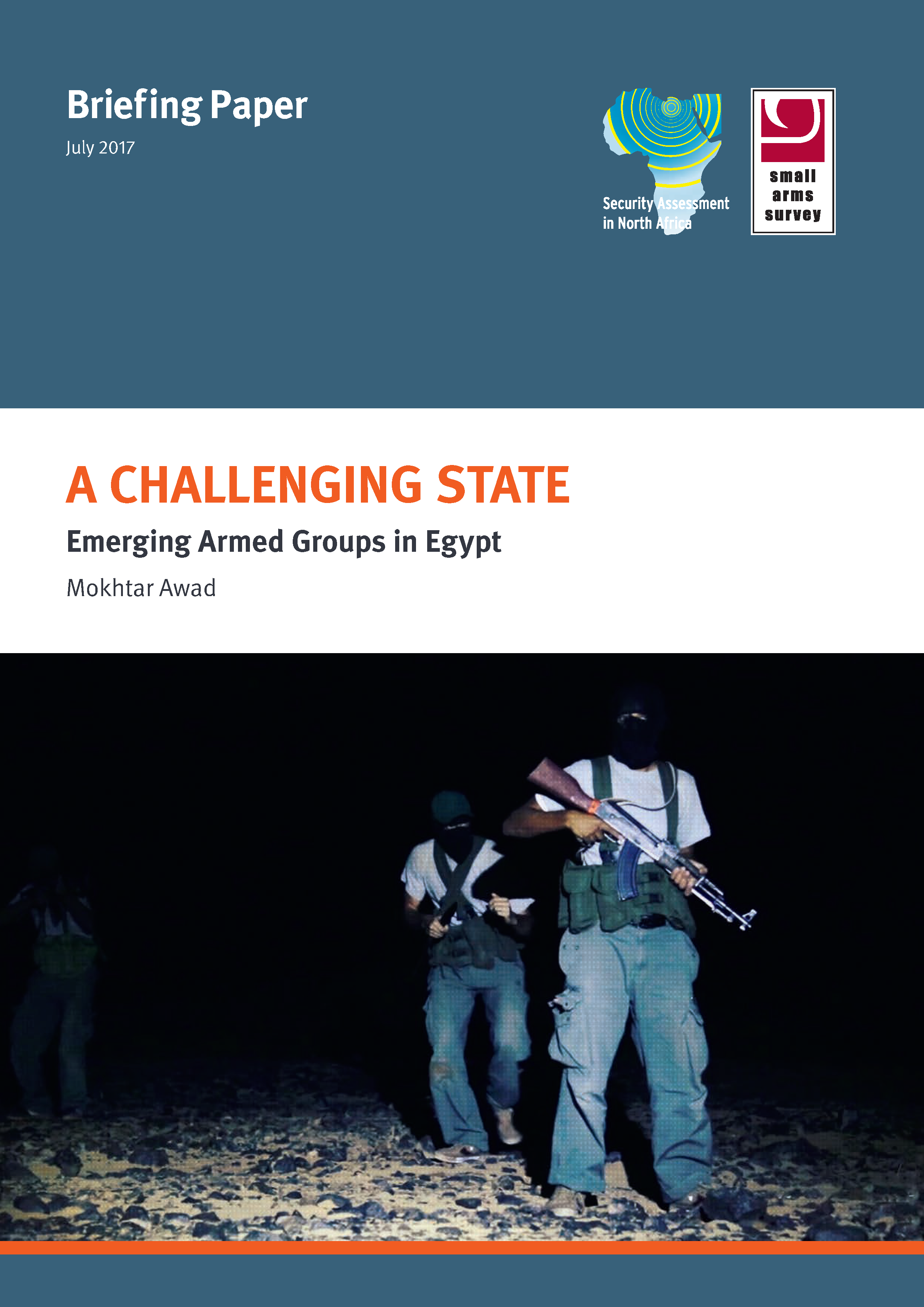
A Challenging State: Emerging Armed Groups in Egypt
An unprecedented and complex Islamist insurgency has raged in Egypt since the 2013 military coup that overthrew the government formed by the Muslim Brotherhood. The Salafi-Jihadi attacks of Islamic State – Sinai Province (IS-SP) are well known. But another strain of pro-violence Islamist armed action aligned with the Muslim Brotherhood (MB) has recently evolved in the Nile Valley, home of 97 per-cent of the country’s population. This new strand of Jihadi belief represents what can perhaps best be described as a type of MB-Jihadism, or Ikhwani-Jihadism. Though this strand is currently less well-known, given the MB’s deep roots in Egyptian political and religious life, it represents a potentially far greater danger to the existence of the state.
A Briefing Paper from the Security Assessment in North Africa (SANA) project—A Challenging State: Emerging Armed Groups in Egypt—explores this trend of Jihadism. Author Mokhtar Awad, a well-known and widely respected expert on Egyptian security matters, explores the origins of Ikhwani-Jihadism—from the creation of the Muslim Brotherhood, through the MB-dominated government installed after the fall of President Hosni Mubarak, to development of Ikhwani-Jihadi armed groups operating today. He notes that Ikhwani-Jihadi groups adhere to the politico-religious doctrine and ideological tenets of the MB and similar Islamist groups. Despite some common ground with Salafi-Jihadis, MB-inspired groups differ on several matters of doctrine and tactics. These include less of a focus on both the issue of takfir (the act of declaring other Muslims apostates) and the immediate implementation of Islamic law. Rather, Ikhwani-Jihadi groups are more focused on overthrowing the Egyptian regime, and potentially other regimes in the region.
Available in: ARABIC | ENGLISH
- Learn more about the SANA project
Have your say about Small Arms Survey resources: take 5 minutes to fill out our questionnaire.